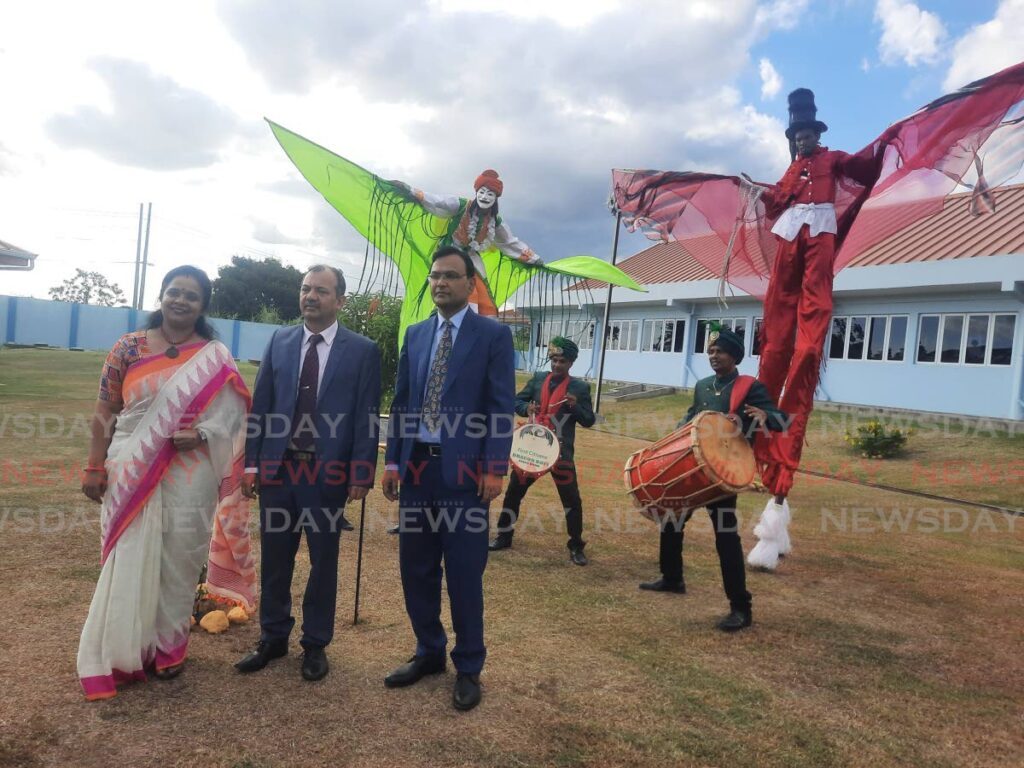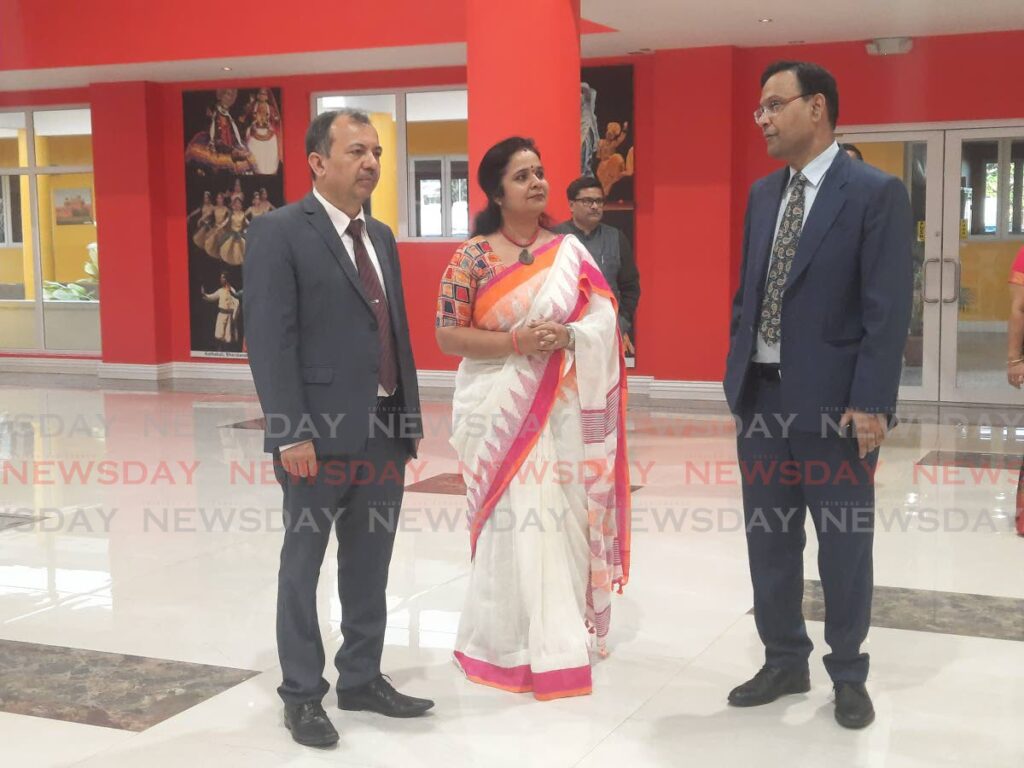Indian cultural ambassador seeks to build ties with Trinidad and Tobago

Director General of the Indian government’s Indian Council for Cultural Relations (ICCR) Kumar Tuhin said he felt he had found a home away from home in Trinidad during his visit.
He said the people who came to the Mahatma Gandhi Institute for Cultural Cooperation to learn Indian culture form a bridge between the two countries.
Tuhin was addressing an audience at the institute at Mt Hope on Thursday. He was visiting the centre as part of a tour of the council's cultural centres worldwide.
During his visit to the centre, he planted a sapodilla tree alongside Indian High Commissioner Dr Pradeep Rajpurohit, and both men were given a tour of the facility, including the administrative offices, library, instrument and vocal classrooms, dance and yoga rooms, classrooms where Hindi is taught, and the auditorium.
The dignitaries also met prominent members of the Indian diaspora, heads of cultural organisations, and eminent artists.
Tuhin said this was his first visit to TT, and the IRCC had great hopes for the institute, which was the largest such centre in the region.
“When I landed only four days into my trip to various countries, I am thinking I have come back home. In TT, I have met friends today, experts and dignitaries. I truly feel that I have found a place that is a home away from India, a true home for myself.
“Therefore I think that the choice for this centre, the biggest and largest in the Caribbean, to be housed in Port of Spain, TT, was the perfect decision, was the right decision made by the government of India and for this we would also like to thank the TT government for their help and assistance in making this a reality.”
The ICCR was founded in 1950 by independent India’s first education minister, Maulana Abul Kalam Azad. Its website said its objectives are to participate actively in the formulating and implementing policies and programmes pertaining to India’s external cultural relations; to foster and strengthen cultural relations and mutual understanding between India and other countries; to promote cultural exchanges with other countries and people; and to develop relations with nations.
Tuhin said the work of the ICCR was cultural diplomacy as part of the Ministry of External Affairs.
“Diplomacy by its own gives a sense of being a complicated matter that is between governments and it’s supposed to be a very formal thing.

“If you look at the word 'culture,' it is a word that is deep in meaning, and also a word whose meaning has expanded over the years. Now if you had asked me the meaning before, I would have included music and dance and art and so forth, but now the meaning of culture also includes so many other aspects which were not considered culture.
“One such is cuisine. Anywhere you go outside, you will find the first thing people will come in contact with is an Indian restaurant, Indian food, tandoori chicken, naan, Indian dishes – they are so popular. The next thing is art and craft, even to this day movies, and so the world of ICCR expanded.”
Tuhin said ICCR could not spread Indian culture alone, but needed the assistance of connections between people of different cultures and geographies.
“That is where your work comes in. The people who have come here today, your work is more important than the work being done by ICCR and other agencies.
The fact that you come here to learn to dance or Hindi or art or some other art form, you become a bridge and a bond of friendship between India and TT.
"This is a country with which we have always maintained close ties. We are thankful to you because you have preserved the ties carefully and with a lot of sensitivity, and therefore we value your friendship, we value that you are coming here, we value your association.”
Tuhin told the audience the institute wanted to work in partnership with them in any activities they were involved in.
“ICCR is over 70 years old and has several activities and plans, including business programmes, scholarships programmes, and others. We invite you to work with us, send more people to us, you can go to India, send more students who can come to this centre, through the partnership. If you need more support, we will work more closely. We want the centre to become a hub of cultural co-operation for this region.”
Rajpurohit arrived in TT on October 6 and presented his credentials to President Christine Kangaloo on October 10. He welcomed Tuhin to TT and said they had been in discussions with officials of TT's Foreign and Caricom Affairs Ministry and the Ministry of Tourism, Culture and the Arts.
"We have been working with various activities with the cultural centre, in different forms of art, yoga and other activities. We see a deep connect between the people of TT and India and see that there is tremendous potential of bringing together the cultures between the people of the two countries and in this regard, I see the visit of the director general of the ICCR as a milestone.
"We have observed there is a keen interest on the part of the director general to see what can be done. He had been delighted to see his ICCR centre, the biggest in the region and is keen to bring more resources, activities and events to the cultural centre."
The institute hosts a number of classes including vocal Hindustani, tabla, dhola, harmonium, Indian folk dances, Hindi, yoga, at the Mt Hope Centre and other venues where requested.

Comments
"Indian cultural ambassador seeks to build ties with Trinidad and Tobago"